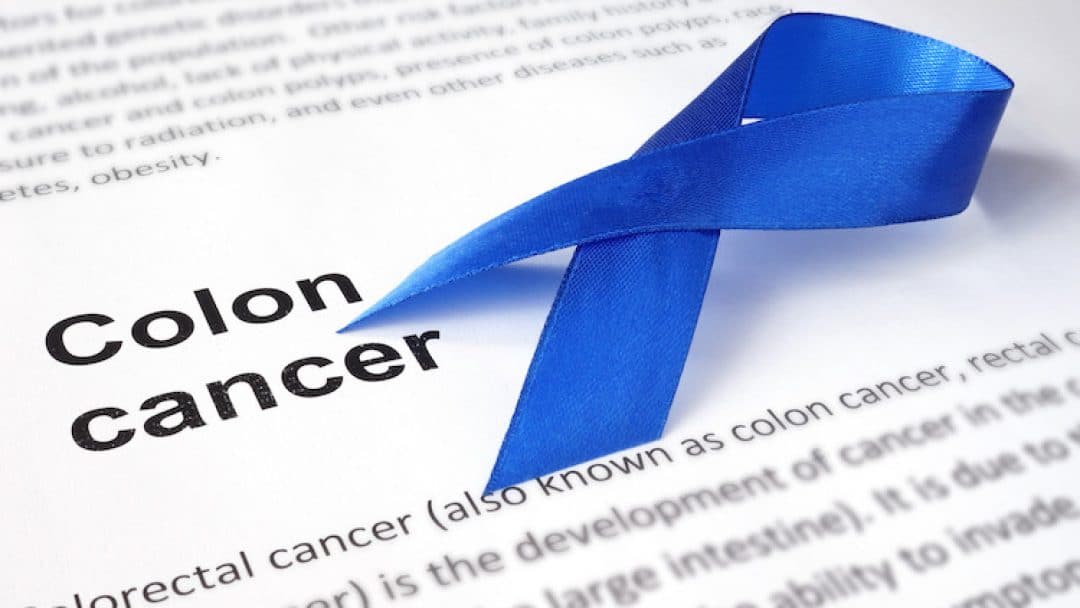By Stacy Simon
Senior News Editor, American Cancer Society
March is Colorectal Cancer Awareness Month. Colorectal cancer is one of the more common cancers in the US. About 1 in 23 men and 1 in 25 women will develop colon or rectal cancer at some point during their lifetime. But there are things you can do to help lower your risk.
Here are 6 ways to help protect your colorectal health.
- Get screened for colorectal cancer. Screenings are tests that look for cancer before signs and symptoms develop. Colorectal screenings can often find growths on the colon or rectum called polyps that can be removed before they turn into cancer. These tests also can find colon or rectal cancer earlier, when treatments are more likely to be successful. The American Cancer Society recommends testing starting at age 45 for people at average risk; talk to your health care provider about when you should start and which tests might be right for you.
- Eat lots of vegetables, fruits, and whole grains. Diets that include lots of vegetables, fruits, and whole grains have been linked with a decreased risk of colon or rectal cancer. Eat less red meat (beef, pork, or lamb) and processed meats (hot dogs and some luncheon meats), which have been linked with an increased risk of colorectal cancer.
- Get regular exercise. If you are not physically active, you may have a greater chance of developing colon or rectal cancer. Increasing your activity may help reduce your risk. Learn more about how to meet diet and exercise goals at cancer.org/foodandfitness.
- Watch your weight. Being overweight or obese increases your risk of getting and dying from colon or rectal cancer. Eating healthier and increasing your physical activity can help you control your weight.
- Don’t smoke. Long-term smokers are more likely than non-smokers to develop and die from colon or rectal cancer. If you smoke and you want to quit, or know someone else who does, see the American Cancer Society guide to quitting tobacco, or call us at 1-800-227-2345. Getting help increases your chances of quitting successfully.
- Limit alcohol. Alcohol use has been linked with a higher risk of colorectal cancer. The American Cancer Society recommends no more than 2 drinks a day for men and 1 drink a day for women. A single drink amounts to 12 ounces of beer, 5 ounces of wine or 1½ ounces of 80-proof distilled spirits (hard liquor).
Research shows that habits related to diet, weight, and exercise are linked to colorectal cancer risk, and those links are stronger than for other types of cancer. Changing some of these lifestyle habits may be hard. But making the changes can also lower the risk for many other types of cancer, as well as other serious diseases like heart disease and diabetes.
Risk factors you can’t change
Recent data has shown that new cases of colorectal cancer are on the rise in younger populations. That’s why the American Cancer Society recommends colorectal cancer screening begin at age 45 for people at average risk. But some people have certain risk factors that make them more likely to develop colorectal cancer, and to get it at an earlier age. For these people, this may mean they should start screening earlier, or get tested more often than other people.
One of these risk factors is a family history of colorectal cancer or pre-cancerous polyps, especially in parents, brothers and sisters, or children. About 1 in 3 people who develop colon or rectal cancer have other family members who’ve had it. Family history of other colorectal problems can also increase risk. These include hereditary syndromes such as familial adenomatous polyposis or hereditary non-polyposis colon cancer, also known as Lynch syndrome.
Your personal history can also affect your risk. For example, you are more likely to get colon or rectal cancer if you have had pre-cancerous colon polyps in the past. Having other conditions, such as ulcerative colitis, Crohn’s disease, or type 2 diabetes can also increase your risk of colorectal cancer. If you have any of these problems, talk to your health care provider about which screening options might be best for you.








